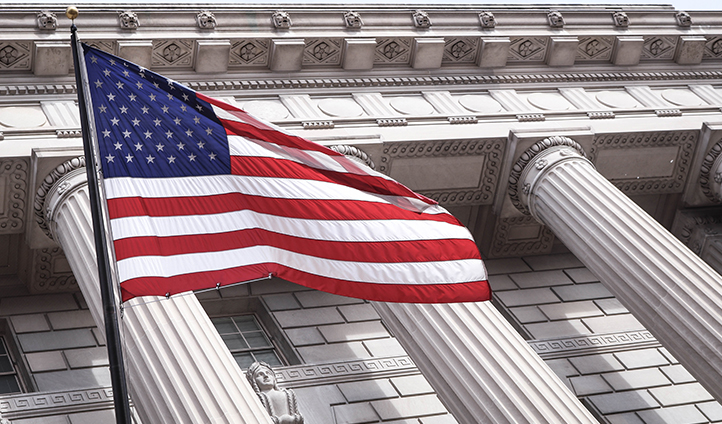SCOTUS Allows Enforcement of The Travel Ban While Legal Challenges Are Pending

The U.S. Supreme Court recently granted the federal government’s request to fully implement President Donald Trump’s September 24 proclamation while the federal appeals courts continue to consider legal challenges. More commonly referred to as the “travel ban,” the order restricts entry into the United States by most citizens of eight countries.
While the decision is considered a victory for the Trump Administration, it does not address the legal merits of the travel ban. The litigation will continue and may very well be decided by the Court.
Prior Court Rulings on the Travel Ban
As discussed more fully in a prior article on the travel ban, President Trump’s March 6 executive order, Protecting the Nation From Foreign Terrorist Entry Into the United States, Exec. Order No. 13780 (EO), suspended the entry of nationals from six Muslim countries for 90 days. The EO stated that the temporary ban is necessary to prevent dangerous individuals from entering the country while the Executive works to establish “adequate standards . . . to prevent infiltration by foreign terrorists.” The EO also suspends “decisions on applications for refugee status” and “travel of refugees into the United States under the USRAP” for 120 days following its effective date.
On June 27, 2017, the Supreme Court held in Trump v. International Refugee Assistance Project, 582 U. S. ____ (2017), that individuals from affected countries who have “a credible claim of a bona fide relationship with a person or entity in the United States” must still be allowed to enter the country. The justices agreed to fully consider the legality of the travel ban during the first session of the October Term 2017.
On September 24, President Trump issued a new proclamation restricting travel to the United States for citizens from eight countries, which replaced provisions of the existing travel ban that expired on the same day. The third version of the travel ban was also met with legal challenges, and two federal district courts issued temporary injunctions blocking implementation. One trial court held that the September 24 proclamation exceeds the authority granted to the president by Congress, while the other held that the order unconstitutionally discriminates against Muslims.
Supreme Court Allows Full Enforcement
The Supreme Court granted the applications to stay the preliminary injunctions in both Trump v. Hawaii and Trump v. International Refugee Assistance Project. Justices Ruth Bader Ginsburg and Sonia Sotomayor would have denied the government’s request.
While the Supreme Court’s decision allows the travel ban to take effect, it does not end the legal challenges against it. In its order, the justices acknowledge that the cases will likely end up before them.
According to the Court’s order, the injunctions granted by the district courts are stayed pending disposition of the Government’s appeal in the United States Court of Appeals for the Ninth and Fourth Circuits and disposition of the Government’s petition for a writ of certiorari, if such writ is sought. “If a writ of certiorari is sought and the Court denies the petition, this order shall terminate automatically,” the order states. “If the Court grants the petition for a writ of certiorari, this order shall terminate when the Court enters its judgment.”
Previous Articles
SCOTUS Rules State Can’t Immunize Parties from Federal Civil Liability
by DONALD SCARINCI on January 29, 2026
In John Doe v. Dynamic Physical Therapy, LLC, 607 U.S. ____ (2025) the U.S. Supreme Court held that...
Supreme Court to Address Racial Discrimination in Jury Selection
by DONALD SCARINCI onWhile the U.S. Supreme Court has concluded oral arguments for the year, it continues to add cases t...
Supreme Court Halts Deployment of National Guard to Chicago
by DONALD SCARINCI on
In Trump v. Illinois, 607 U.S. ____ (2025), the U.S. Supreme Court refused to stay a district court...
The Amendments
-
Amendment1
- Establishment ClauseFree Exercise Clause
- Freedom of Speech
- Freedoms of Press
- Freedom of Assembly, and Petitition
-
Amendment2
- The Right to Bear Arms
-
Amendment4
- Unreasonable Searches and Seizures
-
Amendment5
- Due Process
- Eminent Domain
- Rights of Criminal Defendants
Preamble to the Bill of Rights
Congress of the United States begun and held at the City of New-York, on Wednesday the fourth of March, one thousand seven hundred and eighty nine.
THE Conventions of a number of the States, having at the time of their adopting the Constitution, expressed a desire, in order to prevent misconstruction or abuse of its powers, that further declaratory and restrictive clauses should be added: And as extending the ground of public confidence in the Government, will best ensure the beneficent ends of its institution.





